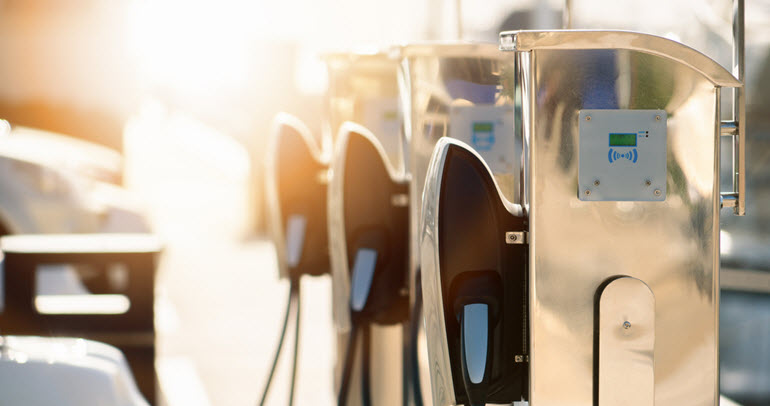
One-third of fleet leaders anticipate adopting electric vehicles (EVs) within the next two years. Is your utility prepared to support this massive change in how fleet customers use energy? Utilities that are prepared can reap rewards in their business and brand perception, while utilities that haven’t yet considered how to support fleet electrification risk being seen as obstacles by their fleet customers.
Consider a small housekeeping business with a 10-vehicle fleet. It is considering switching its fleet over to electric to save money but has questions about how EVs will fit into its business. Among these questions are charging time and infrastructure. Almost half of fleet managers recognize that adding EVs to their fleet will require changes to their business to accommodate EVs’ unique characteristics. Given that many fleet buyers have taken a measured approach to adoption—gathering information and piloting EVs in their fleets is crucial before committing to wholesale electrification.
As they gather information, business customers like our housekeeping business can benefit from utility efforts like Portland General Electric’s education and consultation to businesses considering EVs. As businesses move toward piloting EVs, programs like Georgia Power’s Will It Work can help fleet managers understand whether EVs are suitable for their fleet based on use and duty cycle data and start to plan for the changes their business will need to make to incorporate EVs.
Once our housekeeping business has decided to invest in EVs for its fleet, it will need to install charging infrastructure and understand how to manage the EV fleet’s impact on the business’ electric use. Utilities can provide critical support here, too, as PG&E’s EV Fleet program does by providing turnkey infrastructure design, construction and maintenance.
Prior to transitioning its fleet to all-electric, our housekeeping business’ electric use and demand was similar to a residential customer’s. However, after electrifying its fleet, the business’ overnight demand spikes to nearly 80 kW and its overall use triples to 3,000 kWh a month. The business needs help understanding the implications of these changes on its bill, and may look for rate options like time-of-use that it wouldn’t have previously considered.
While every fleet customer’s situation will be different, the opportunity—as well as need—for utility programs to support fleet electrification is real. There are around 8.5 million cars and trucks in fleets around the country, which represents a significant opportunity for load growth as these vehicles are electrified. In addition to providing a significant new source of electric load growth, businesses that use EV charging programs from their utility are significantly more likely to say that their utility is a “partner in aiding the success of their business” than the average business. However, since electrification is top-of-mind for many fleet leaders, if your utility doesn’t have plans in place now to support them as they explore electrification, you risk being seen as an obstacle rather than a partner.
If you are interested in learning more about fleet customers and how utilities can serve them, please send us a note.









